'A second referendum offers the real can-do spirit of the Second World War, not hard Brexit': 95-year-old veteran's message to Boris Johnson
Rod Russell lost his leg fighting alongside the Gurkhas in Italy. His sister Denny watched him march away to war and return home wounded. They have both signed the Final Say petition
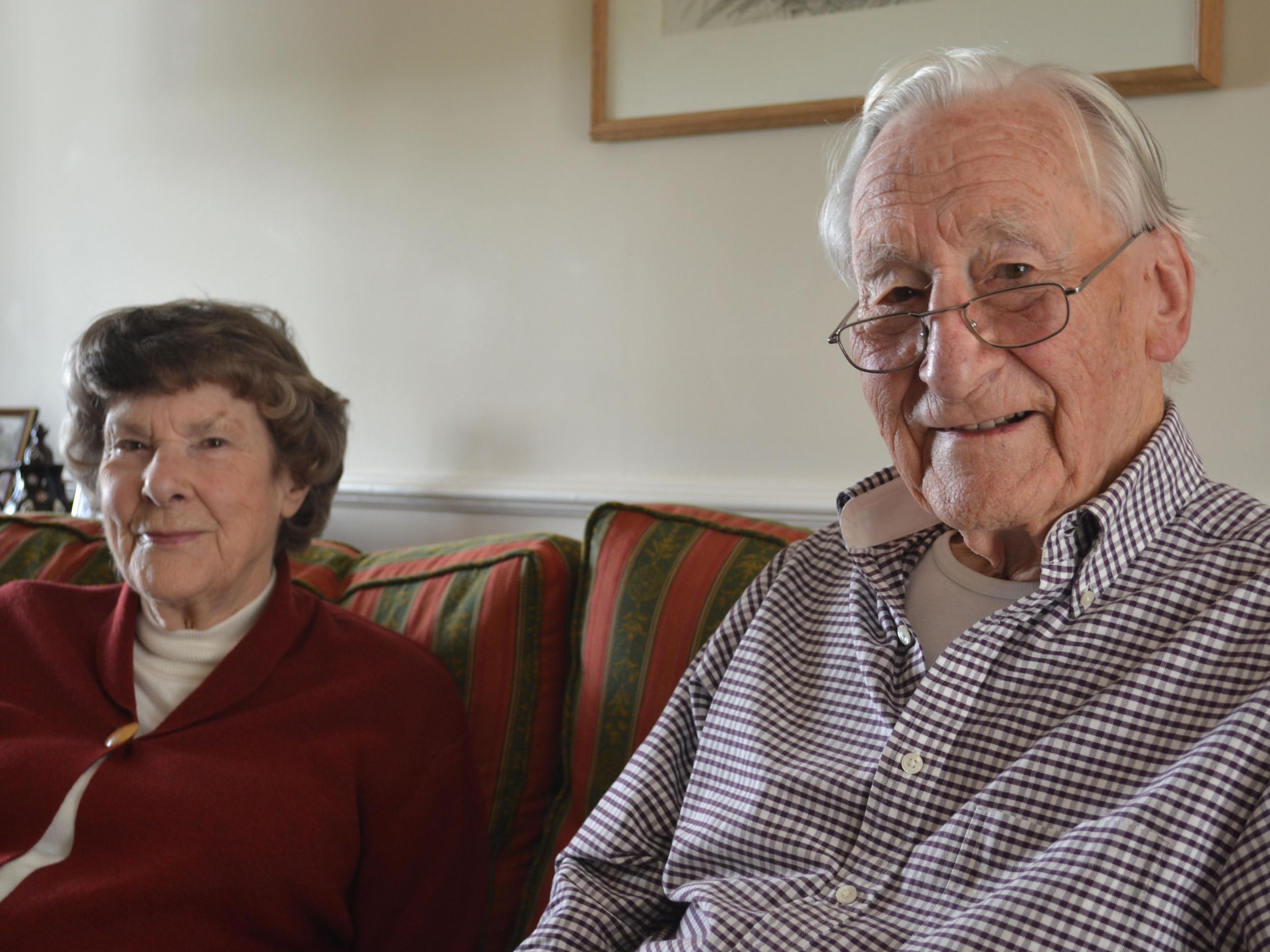
Your support helps us to tell the story
From reproductive rights to climate change to Big Tech, The Independent is on the ground when the story is developing. Whether it's investigating the financials of Elon Musk's pro-Trump PAC or producing our latest documentary, 'The A Word', which shines a light on the American women fighting for reproductive rights, we know how important it is to parse out the facts from the messaging.
At such a critical moment in US history, we need reporters on the ground. Your donation allows us to keep sending journalists to speak to both sides of the story.
The Independent is trusted by Americans across the entire political spectrum. And unlike many other quality news outlets, we choose not to lock Americans out of our reporting and analysis with paywalls. We believe quality journalism should be available to everyone, paid for by those who can afford it.
Your support makes all the difference.A certain amount of improvised ceremonial is required before Rod Russell and Denny Ashenhurst can settle on the sofa.
“Just shift your bottom,” commands Rod, 95.
“He was an awful bully you know,” confides Denny, 90. “Made me go in goal so he and all his friends could kick footballs at me…”
It is, you realise, the joshing of a brother and sister who can’t quite admit they adore each other.
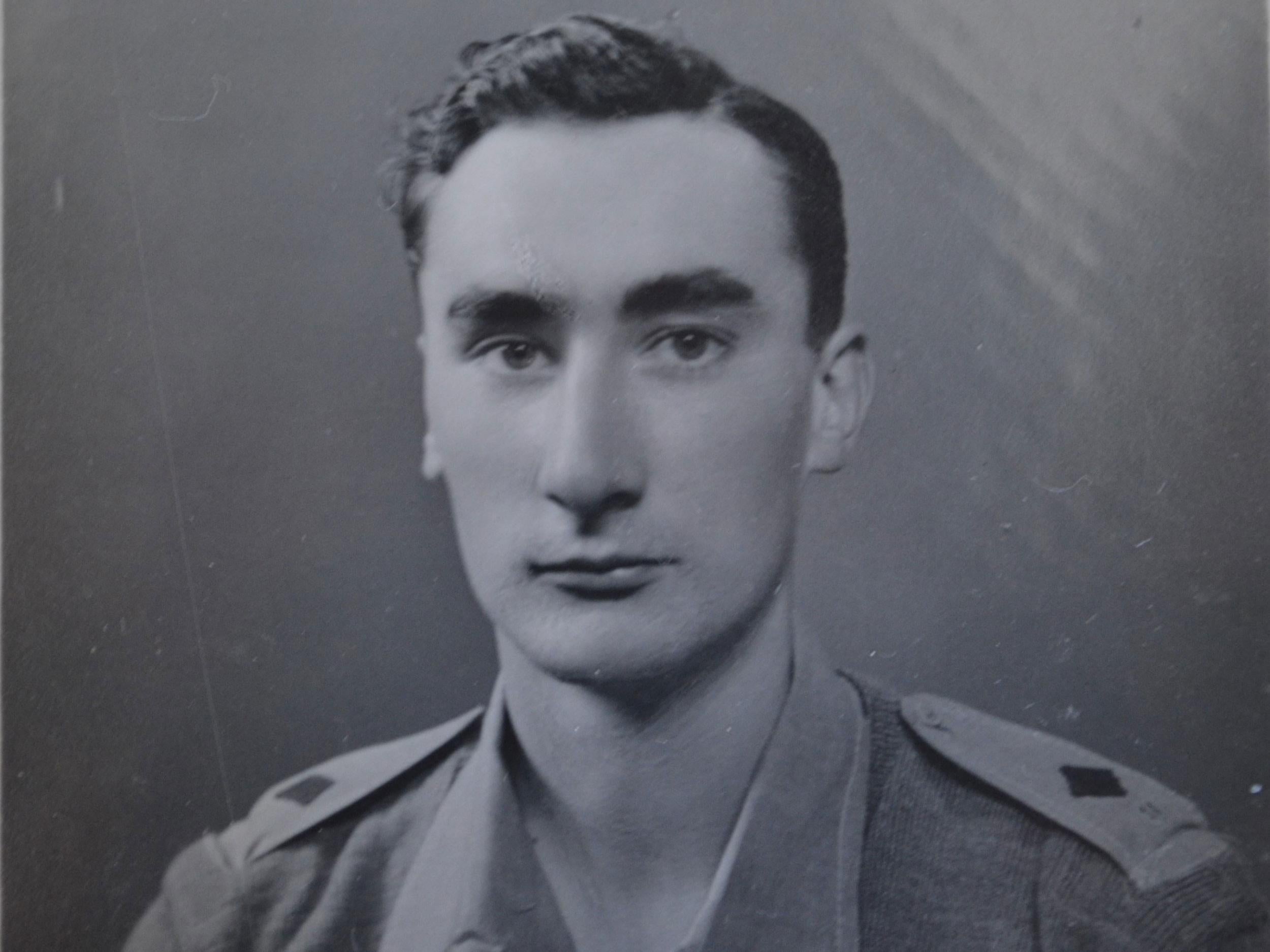
They live next door to each other in Cheltenham, Gloucestershire, and meet every afternoon.
Rod checks up on Denny. Denny checks up on Rod.
And they share each other’s news, like the fact that after more than 70 years of prosthetics made of “made of wood, of plastic, of everything”, Rod is “under caution” for getting a “bionic leg” because he is eligible as an ex-member of the Armed Forces.
As well as their own news, Rod and Denny discuss other issues. And when it comes to Brexit, they have rather a lot to say.
“It’s a bloody awful muddle,” says Rod, or ex-lieutenant Russell, to give him his wartime rank. “We put all this effort into bringing the nations together, and now we’re just giving up the ghost.
“I feel so disappointed. This dear old nation has lost itself really badly.”

By a strange coincidence, The Independent spoke to Rod and Denny in Cheltenham at about the same time Boris Johnson was at a black tie dinner in Washington, calling on Britons to adopt the “can-do spirit” of the Second World War to achieve his vision of Brexit.
Fortunately for Mr Johnson, Rod and Denny still have plenty of that can-do Second World War spirit.
“I have always been a fighter against problems,” says Rod. “It’s just my way of dealing with life.”
Unfortunately for Boris, their can-do spirit does not lead Rod and Denny to support Brexit. It has prompted them to sign The Independent’s Final Say petition for a referendum on the final Brexit deal.
Along with his sister, Rod doesn’t see Brexit as honouring the true fighting spirit of Great Britain. He considers it a betrayal of Britain’s proud history as one of the leading nations of Europe.
“For God’s sake, why don’t we lead by example?” he says. “We of all people should be setting an example and trying to sort it [the EU] out.
“We are not using our strength to try to revise the situation. Instead we are saying: ‘No, it’s not going the way we want it to,’ [and leaving].
“Surely that is resigning ourselves to defeat? We should never have given up the way we have.”
Nor does the otherwise faultlessly polite Mr Russell call the ex-foreign secretary ‘Boris’, or even ‘Mr Johnson’.
He calls him “that idiot, that yellow-headed man.”
“He didn’t half tell some lies,” says Rod, recalling the EU referendum campaign. “He’s a chancer, that’s what he is: a chancer.”
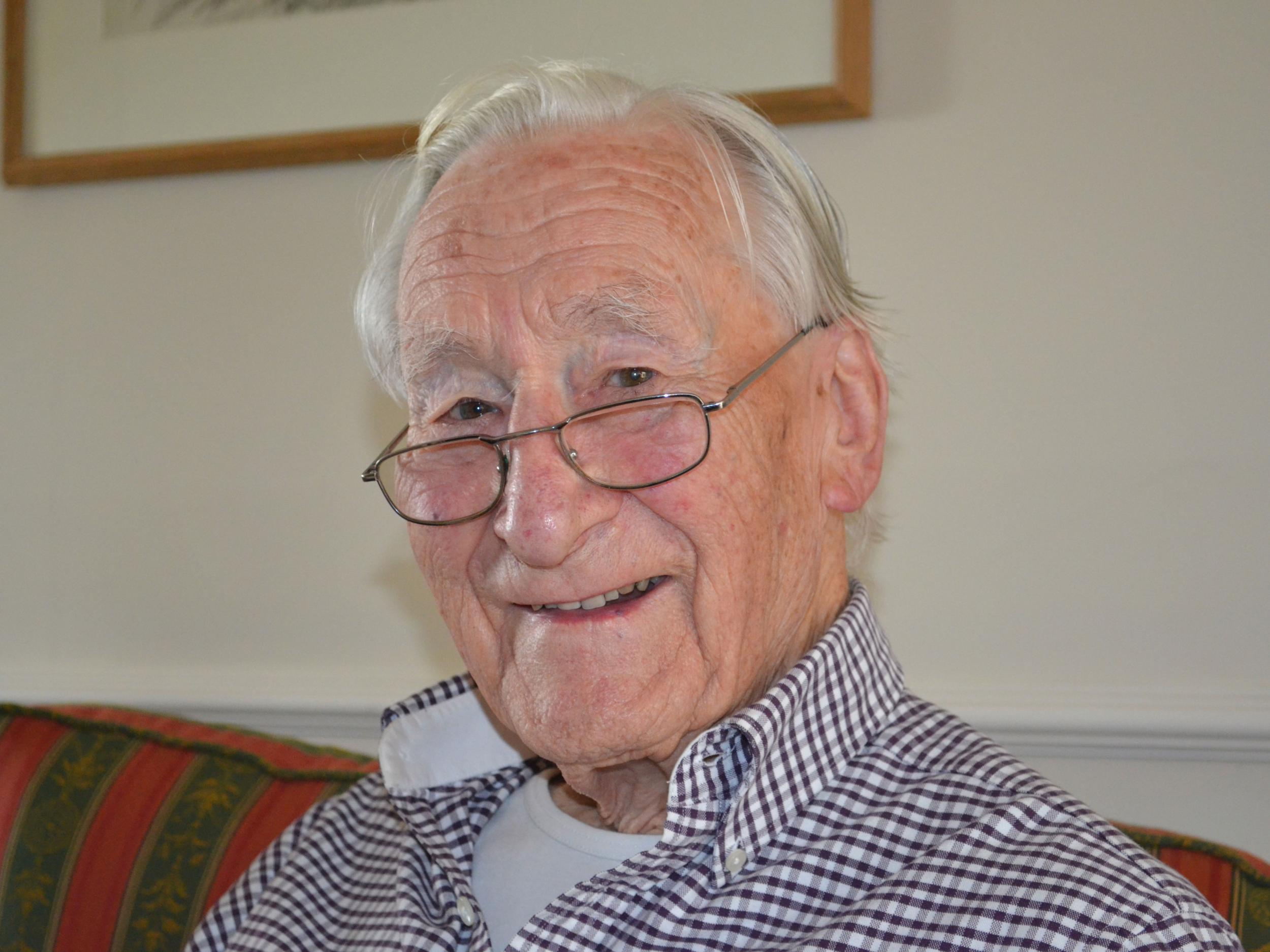
Perhaps, though, if “the yellow-headed man” were being honest, he might concede that Rod and Denny know a thing or two about applying “can-do spirit” to get out of national “muddles”.
Because, unlike him, they were there.
“It was a Sunday morning,” says Rod. “I was standing in the kitchen, looking out through the bay window, and Chamberlain was telling us: ‘We are now at war.’”
He joined the Home Guard at the age of 16. Shortly after his 17th birthday, without telling his mother, he cycled from his home in Amersham, Buckinghamshire, to join the army in the form of a young soldiers’ training regiment.
“It was the done thing,” he says, “Nothing very special. The war had happened, and we were all going to work our way through it and protect the country.
“Although I knew if I told my mother beforehand, she would have done everything in her power to stop it.
“She took it on the chin when I told her. I think she had steeled herself for the inevitable.”
Denny, now a great-grandmother, was 12: “Of course I was proud. I had taken it for granted that he would join up – and that my brother would win the war.”
Inspired by a senior officer’s talk about the sub-continent, Rod volunteered for the British Indian Army.
There was a final embarkation leave before he was shipped to India for training.
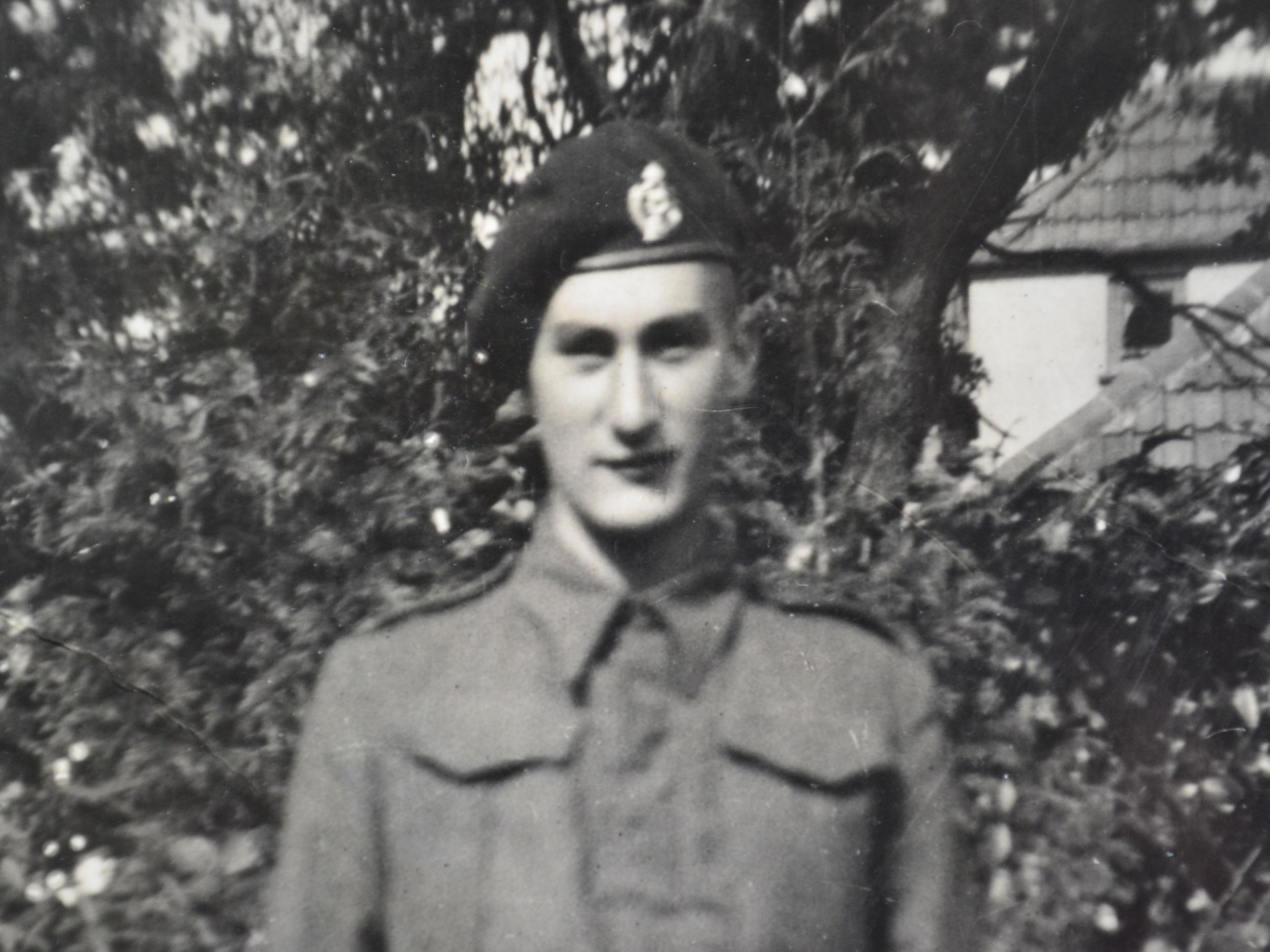
The photos show a handsome young man in khaki, amid the flowers of a Home Counties garden. They were taken by his mother Elsie and put in an album entitled “Rodney off to war”.
In the spring of 1944, as a motor transport officer in the 2nd Battalion, 3rd Gurkha Rifles – a 20-year-old lieutenant in charge of 30 soldiers – Rod joined the slog up Italy, through the mud, the rain, and the bullets.
“You hear the ‘phfft’ ‘phfft’ of the bullets going past you … I have seen people shot, people with the back of their heads blown out by a sniper. I have lost good friends.
“What can I say? When you are on a battlefield, you have things happen. It just happens. And if you don’t get injured, you get up and carry on. War is a very blind thing. You have to keep on doing what you are doing, and not let it affect you.”
That’s about all you can get him to say.
Rod much prefers to stick to the humorous anecdotes: that embarkation leave – “Bertie Haddon and I went to see the girls at the Windmill, had a very good time” – or his first contact with a British Army officer: “He got all us young soldiers in a room and said: ‘There’s no need to tell lies any more. How old are you really?’
“One Scotsman from Glasgow admitted he was 15, but there was no question of sending him home.”
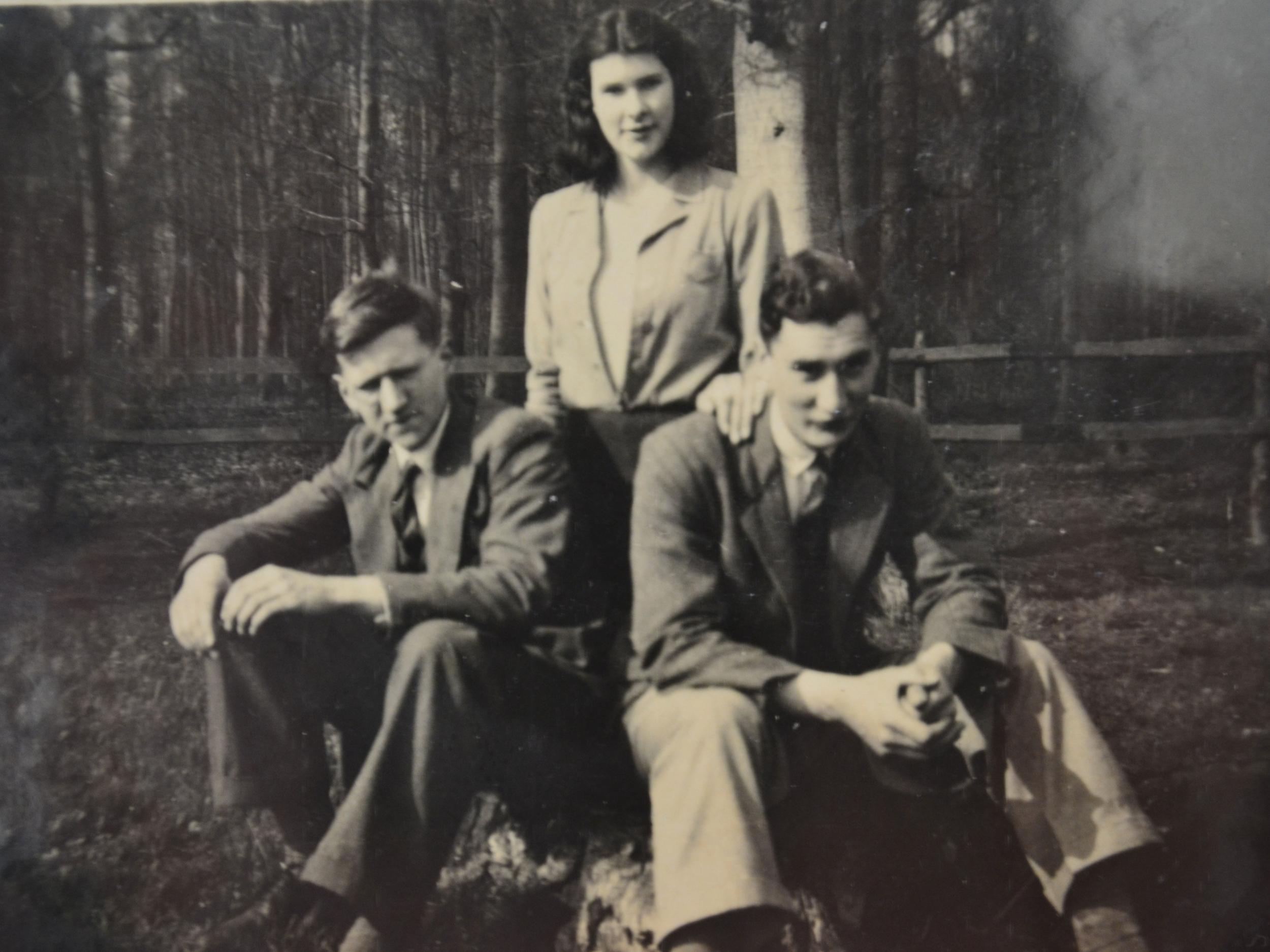
Eventually, he agrees to tell you how he got “mashed up”.
It was June 1944, near Assisi.
“I was on a motorbike, trying to make contact with battalion HQ – on my own.”
The first mortar landed just in front of his motorbike.
As he was trained to do when about to crash, Rod slid one way, and the bike the other.
“I was lucky,” he insists.
The next two mortars hit the bike, which meant they missed Rod, who had found shelter in a shallow ditch.
The first mortar, though, had done damage enough.
But as Rod lay bleeding, someone heard his cries for help. His “wonderful” Gurkhas put him on a stretcher and carried him to a field hospital.
Again, Rod insists he was lucky.
“I was picked up quickly. That was often the difference between life and death.”
At the field hospital, a medic looked at his wound.
“He said: ‘I’m very sorry Mr Russell, we are going to have to remove the leg.’”
A month short of his 21st birthday, Rod lost his right leg.
“It was nothing special,” he insists. “That sort of thing was bound to happen if you went on long enough.”
Their mother waited until 16-year-old Denny had sat her school matriculation exam before telling her the news.
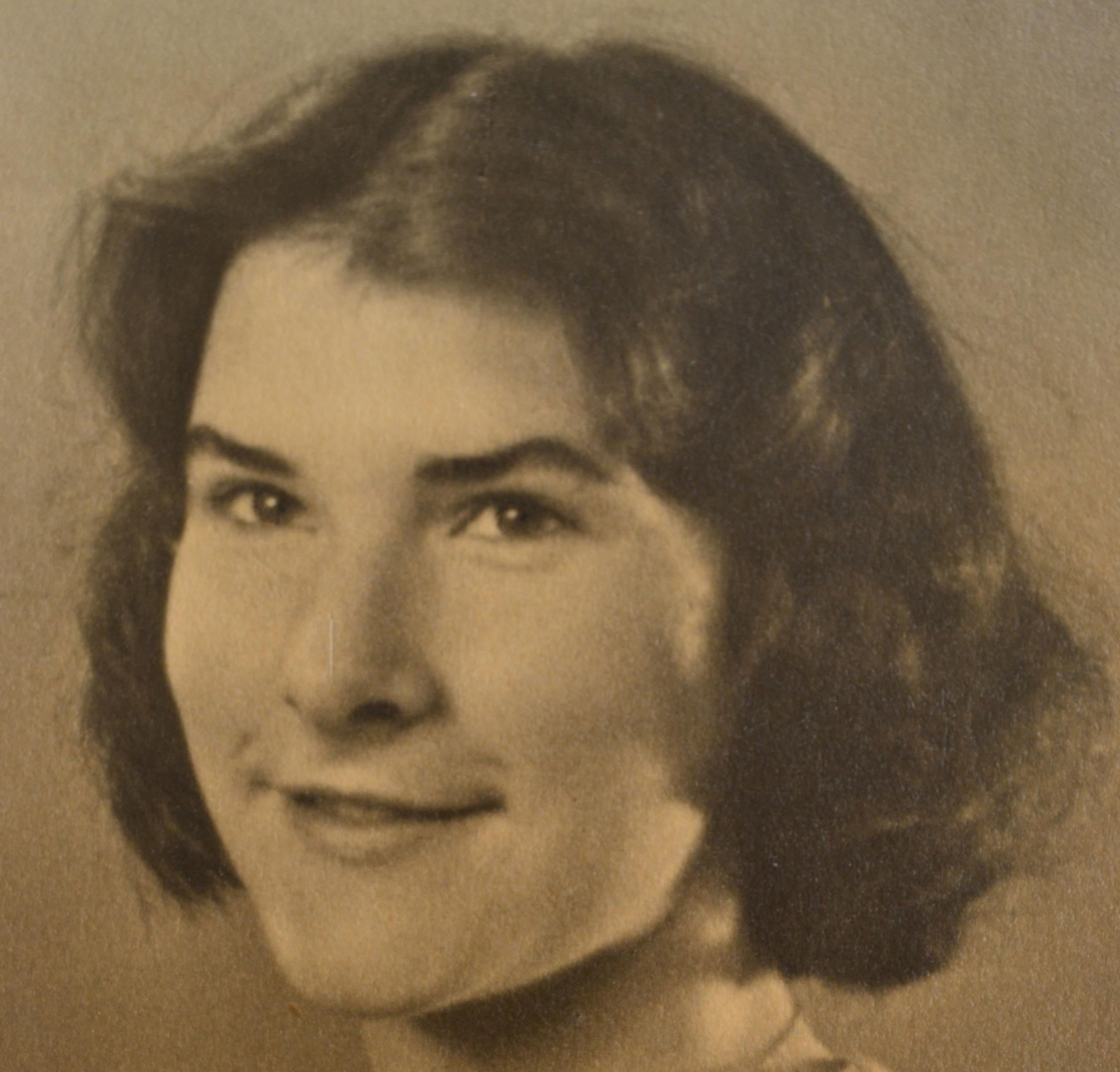
“It was a shattering day,” she says softly.
Rod survived to have a career as an insurance inspector and to be married to his wife Margery for 50 years until her death.
And so again he tells you: “I was lucky.”
“I ended up with a scratch,” he insists. “Lots of chaps were far worse off than me. Lots of chaps died.”
And if you suggest he should support Brexit because he and the other chaps had been fighting a German-dominated plan for European union, you get a very firm response.
“We weren’t fighting against European union at all. We were fighting against the Nazi party, for Europe, against the fascists.”
And that required a fair amount of international co-operation.
Recalling how he arrived in Italy just after the fall of Monte Cassino, Rod notes it was the Polish II Corps that succeeded where others had failed, taking the monastery after the Germans had turned it, and the rocky outcrop on which it stood, into a near-impenetrable fortress.
“I had friends in a different division to mine who got three-quarters of the way up that hill with the Gurkhas before having to come down. The Poles did a damned good job.”
The Poles are still doing a damned good job as far as Rod and Denny are concerned.
Denny describes the “wonderful Polish girl” who visits to clean her house and generally look after her as her “right arm”. And after she’s finished at Denny’s, this EU national goes to her second job, providing night-time care for paraplegics.
Rod and Denny don’t like the idea of Brexit disrupting freedom of movement in the other direction either.
He may be 95, but Rod is emphatic: “We dead against this idea of limiting freedom of movement between the countries of Europe. We want freedom. We don’t want to be told just to sit in our own little cell...”
“I do feel,” says Denny softly, “that the referendum campaign, with all those claims of money going to the NHS, was … very unfair.”
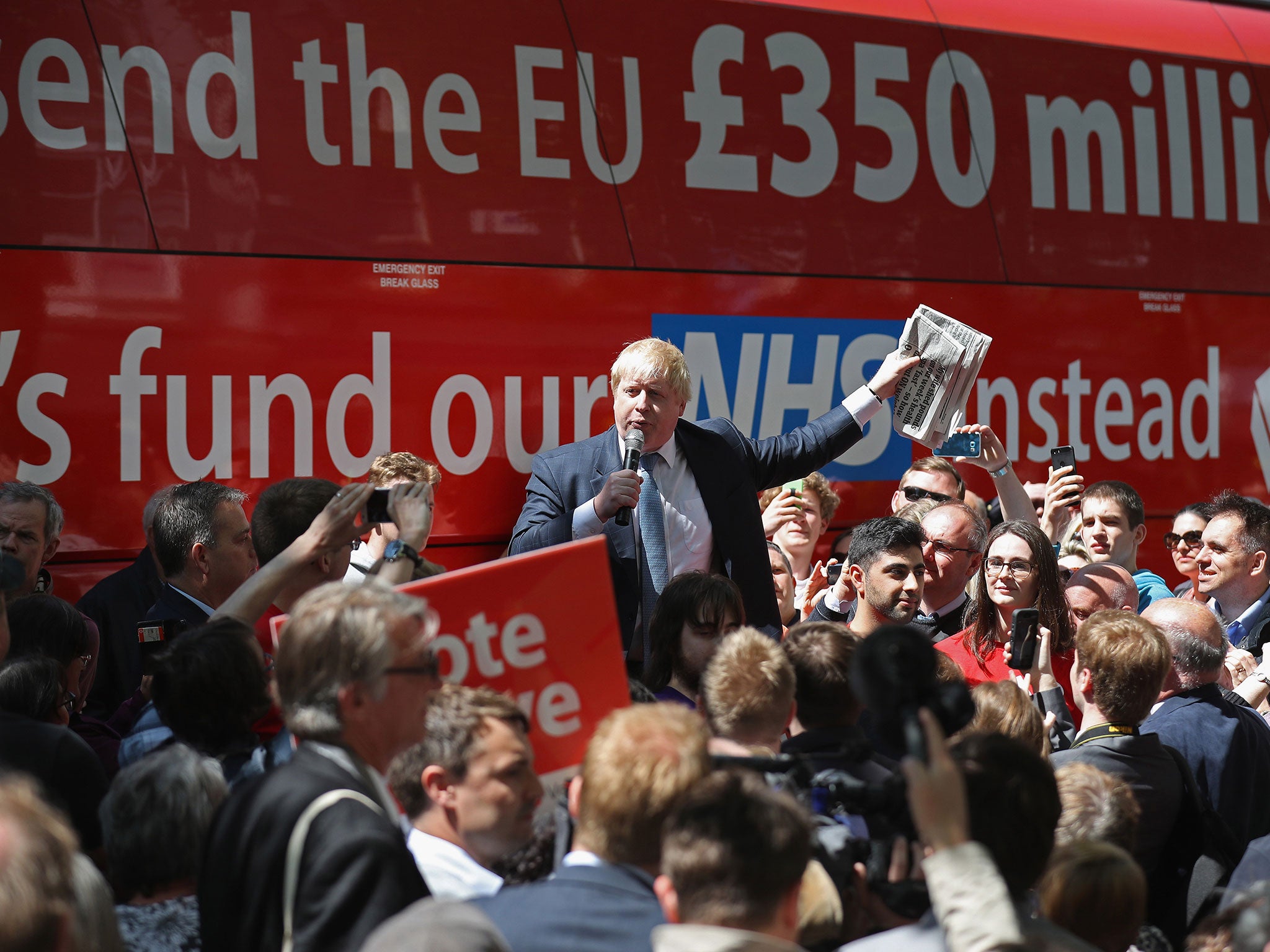
“Shameful,” says Rod, not quite so softly. “Really, really shameful.”
A second referendum, Rod and Denny suggest, is all the more necessary because people are starting to see the reality behind those Brexit promises.
“Where on earth are we going to get our trade deals from?” says Denny.
“Look at people like Jaguar Land Rover,” says Rod. “Where are they going to get their parts from?
“The people behind Brexit are just bringing problems we didn’t need to have.”
And yes, they do worry about Brexit damaging the cause of peace. They fear it will weaken a European Union that was founded 12 years after the end of the Second World War in the hope of binding nations together in mutual self-interest and prosperity.
“War is caused by economies clashing,” says Rod. “I am not one for dissociating myself from the idea of continuing the Common Market.”
His first memory of anything of political significance was of his parents signing a round-robin letter in support of an earlier attempt at international co-operation: the League of Nations.
Mother and father had been very keen on nations co-operating in the interests of peace. Harold, Rod and Denny’s father, had served on the Western Front in the First World War.
“He never talked about it,” says Denny.
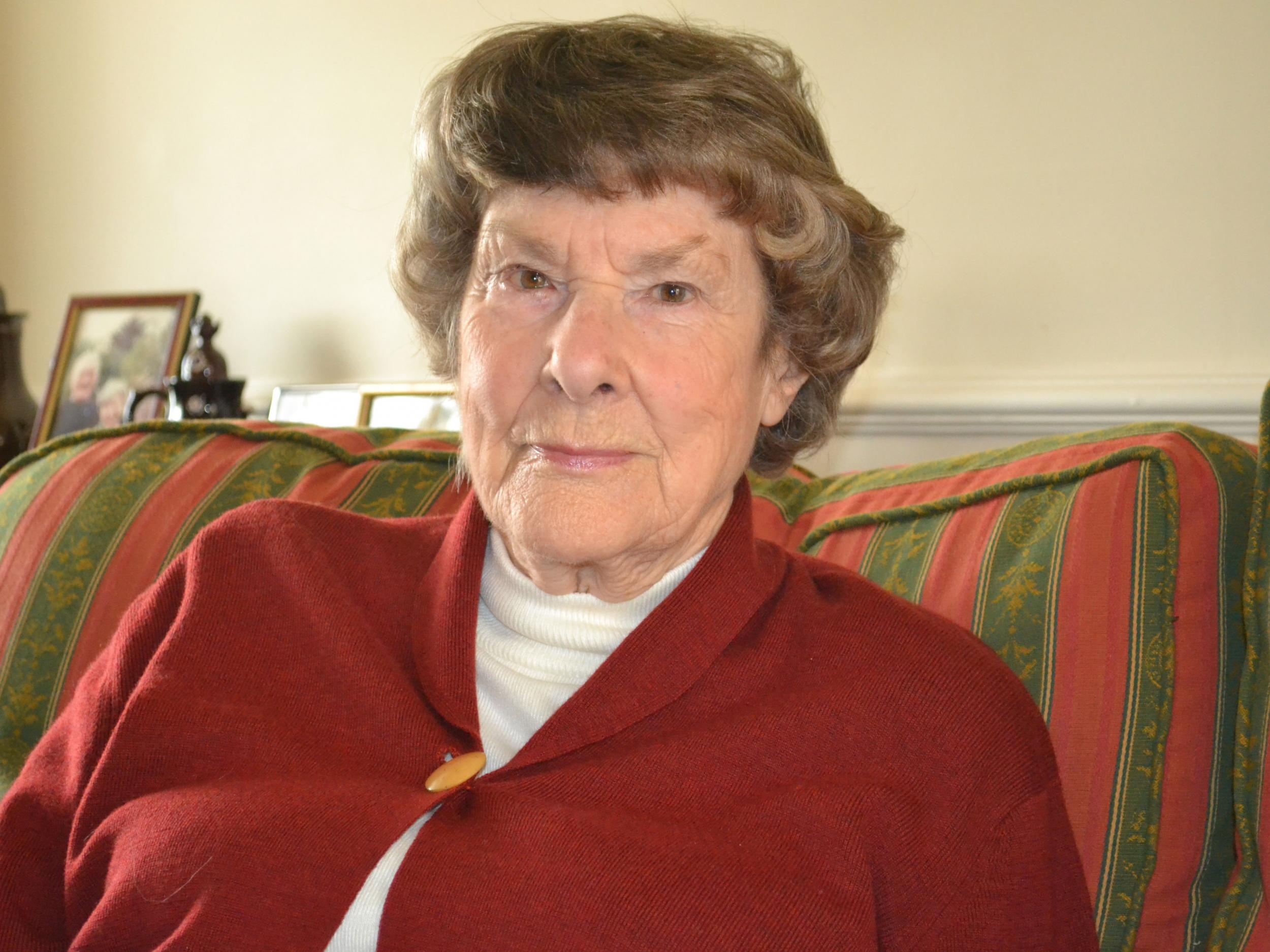
And now Rod and Denny, having lived through their own world war, see the nationalist far-right rising across the continent.
“Look at what is happening in Hungary,” says Denny, “In Sweden. There is a rise of the neo-Nazis in this country too. It is awful.”
The UK, they feel, is embarking on Brexit at the very moment the EU needs strengthening as a bulwark against the kind of bellicose sentiments that forced their generation into war, and which now seem to be resurfacing.
They worry that yet another generation may have to face yet another war in Europe.
“I think that very strongly,” says Denny, a retired art teacher.
“I agree with my sister,” admits Rod. “The end result could be war, horrible thought though that is.”
Rather softly, but rather too seriously for it to be altogether a joke, Denny recalls her days as a CND peace marcher.
“I may have to start marching again,” she says. Despite the stick, despite the osteoporosis
Rod, meanwhile, exhibits more of that can-do spirit of the Second World War.
It is delivered with some of the army language he learned while fighting it.
“I would just like,” he says, “to bang a few heads together and say: ‘Don’t be so bloody silly.’”
Join our commenting forum
Join thought-provoking conversations, follow other Independent readers and see their replies
Comments